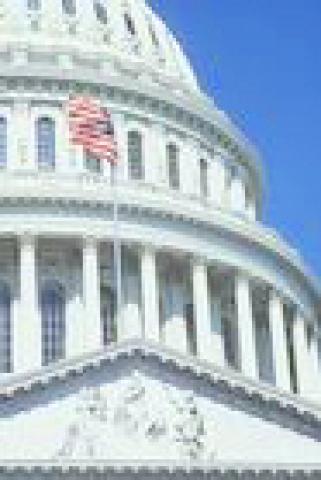
In the summer of 2013 the Obama administration published a statement entitled "U.S. Strategy Towards Sub-Saharan Africa." Nearly a year later, the U.S. Senate held committee hearings on two of the four pillars of the strategy, namely how to spur economic growth through the Power Africa Initiative and how to advance peace and security through the U.S. Africa Command (AFRICOM), one of nine Unified Combatant Commands of the U.S. Armed Forces. In these hearings, two contrasting perspectives on Africa are evident: "Africa Rising" and Africa as "security threat." The following article was published in the May-June 2014 NewsNotes.
In testimony before the Senate’s Committee on Armed Forces, Gen. David Rodriguez revealed not only the growing U.S. national interests in Africa but also the transnational security threats and challenges that AFRICOM sees arising on that continent. At the top of his list are regional instability and the growth of Al Qaeda networks, as well as the expansion of drug trafficking networks. In the "Africa as threat" framework of the U.S. military, much attention is given to the "security environment" which is seen to be marked by growing uncertainty. According to Rodriguez, during 2013 AFRICOM conducted 55 operations, 10 exercises, and 482 security operation activities in Africa. The goals of these military interventions are clear: to advance the enduring national interests of the U.S. for security, prosperity, democratic values and international order within Africa.
[See this article from September 2010: AFRICOM: Reevaluate U.S. policy toward Africa]
Much of the security-maintenance activity of AFRICOM is aimed at combating Al Qaeda and is carried out through counterterrorism operations. But, as Sen. Carl Levin (D-MI) pointed out in his opening statement to the hearings, AFRICOM is also called on to meet other security challenges such as evacuation support; training of African peacekeepers; assisting in the training and equipping of dozens of militaries on the continent; enabling and supporting the multilateral effort to remove the Lord’s Resistance Army; and assisting the French military in its operations against extremists in Mali and operations to halt further atrocities in the Central African Republic.
This all costs money. According to Sen. Levin, the U.S. military is facing a fundamental challenge: significant budget reductions and the looming possibility of renewed and damaging sequestration. When asked if AFRICOM’s surveillance needs – a particular focus of the Committee this year – were being met, Gen. Rodriguez replied that only about 11 percent of the intelligence, surveillance and reconnaissance assets were available.
A different view of Africa appears in the testimony given to the Senate Foreign Relations subcommittee on Africa by supporters of the Power Africa Initiative, a key component of the Obama administration’s strategy to spur economic growth in sub-Saharan Africa. In testimony to this committee, Africa is portrayed as a continent with tremendous untapped resources for sustainable electrical power generation including geo-thermal, natural gas, hydro and solar. Such resources could be developed to address the huge lack of access to electricity in sub-Saharan Africa. By 2020, according to its advocates, Power Africa hopes to increase electricity access for at least 20 million new households and commercial entities. It also hopes to help African nations manage their energy resources and increase their cross-border energy trade.
In the "Africa Rising" perspective that underlies Power Africa, a new model of U.S. development assistance is proposed that favors production and access to clean, more affordable energy through a public-private partnership with private energy companies such as General Electric. To date, the U.S. government has put up $8 billion for this initiative and private companies have pledged $14 million. But there are catches in this initiative: African governments must improve their investment climate by reforming their laws, regulations, tariffs, market structures, institutions and by improving indigenous capacity to plan, design and negotiate sophisticated transactions. Tariff reform, however, can mean a rise in what consumers pay for electricity.
Critics of the Power Africa initiative raise numerous issues. Is the model of large gas, oil, or coal-powered electrical generating stations the best way to proceed given what we know about the polluting effect of such plants in other parts of the world? What plans are there for the use of renewable resources for the generation of power in Africa? Who will benefit from the extraction of the natural resources like oil and gas? Unfortunately, these and many other questions about the developmental model underlying Power Africa did not surface during the recent hearings because only the voices of the "implementers" – the big energy firms, the U.S. government-sponsored development and financial institutions, and friendly environmental groups -- were invited to testify to the Senate committee.
